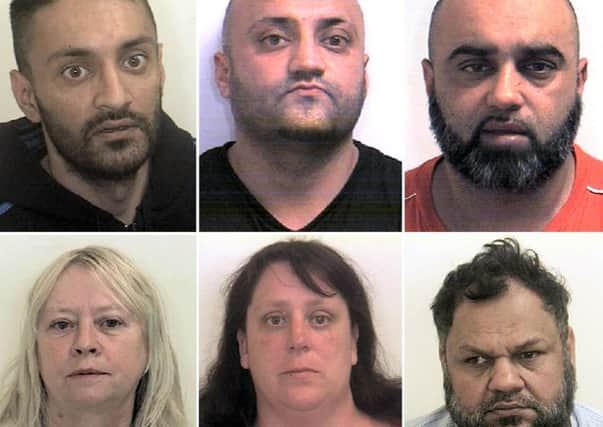Leaders: Action is needed to stop '˜another Rotherham'


Each revelation in the Rotherham sex abuse scandal seemed to uncover yet another horribly distressing layer of denial and institutionalised complacency.
While the ringleader Ashid Hussain has been jailed for 35 years, and the others involved in the heinous exploitation of young girls imprisoned, the question must be why they managed to get away with it for so long.
Advertisement
Hide AdAdvertisement
Hide AdIt beggars belief how Hussain and the other men involved got away with the rapes and assaults, aided and abetted by drugs, threats and violence inflicted on troubled young girls and teenagers.
But the simple reason is that the police and council officials refused to look on these poor mis-led and manipulated girls as victims. Instead they were regarded as “coming from the wrong side of the tracks”.
The attitude from those in positions of authority was that these girls had somehow made a life-style choice and therefore were somehow party to the gang rapes and humiliations they suffered. The grooming starting with token “presents” such as mobile phones and money and claims of love and affection to blind-side and bewilder the vulnerable girls before they were passed around the men.
Aggressive and powerful as these men were– Hussain boasted of “ruling Rotherham”– they could have been stopped many years ago.
A report in 2002 by Home Office researcher Adele Gladman was left unpublished. Gladman maintains it was suppressed and she says she was threatened and sent on a diversity training course after her findings revealed that a small number of Pakistani men were involved in the abuse of large number of young people.
The charity Parents Against Child Exploitation campaigned as fiercely as they could, given their limited resources and the impassive response they encountered from the police and council.
But the case leaves a great sense of unease.
How do we know that the institutional culture which allowed the Rotherham abuse to flourish is not present elsewhere? What do we put in place to stop it?
There are always lots of apologies about “systemic” failings after dreadful past events are eventually exposed.
Advertisement
Hide AdAdvertisement
Hide AdThe BBC is a case in question with many of its employees citing the “culture of reverence and fear” which let Jimmy Savile and Stuart Hall abuse youngsters for years.
What we need is a direct, streamlined system, headed by a independent person of some standing, a type of child sex abuse Ombudsman, who has the power and ability to take action quickly and robustly to get things moving if claims of a similar nature are made.
There are already people in organisations whose remit is to deal with child protection but we need someone not wrapped up with other institutions, filling a host of roles and with other responsibilities.
We owe it to our young people to move quickly and get it right.
Bureaucracy is a small price to pay
Increased bureaucracy is something which most of us tend to resist where possible.
But there can be no doubt that airguns can be dangerous in the wrong hands.
People choose to have these weapons for all sorts of reasons, ranging from farmers and crofters culling rabbits to those who use them for recreational target practice.
But the tragic case of two-year-old toddler Andrew Morton from Easterhouse in Glasgow, who was killed near his home in March 2005 when an airgun pellet hit him on the back of the head, brings home how lethal these weapons can be in the wrong hands.
Advertisement
Hide AdAdvertisement
Hide AdThe young boy’s mother, Sharon McMillan, who campaigned to see the weapons banned in Scotland, said: “Most people think these are toys but they’re lethal weapons.”
The Scottish Government vowed to introduce a licensing scheme following Andrew’s death.
The announcement from the government that owners will have six months from July to register their airguns is therefore to be welcomed. Especially when we hear that there are approximately half a million airguns still unlicensed.
Also to be welcomed is the move by Police Scotland to introduce an amnesty allowing people to “surrender” unwanted airguns.
Critics say airgun crimes are in decline and point to the lengthy bureaucracy getting a licence from Police Scotland under the new legislation could entail.
But while fatalities involving airguns are thankfully rare, any inconvenience is getting a certificate is a small price to pay to ensure we have a greater level of safety and owners of such weapons are accountable.